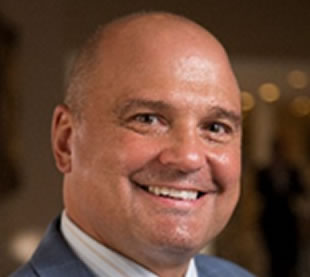
Millennials Could Give This Financial Gift To Dad For Father’s Day
 This year for Father’s Day, instead of another golf shirt, a gift card, or the ever popular power tool, if your dad doesn’t already have a written financial plan, consider giving him one. The millennial generation is poised to be the next “sandwich generation,” providing for their children while also having to care for elderly parents. Couple that with the fact that the majority of working Americans are unprepared for retirement or a costly long-term illness, and it makes sense that giving a parent the gift of a financial plan can be a good move for a millennial.
This year for Father’s Day, instead of another golf shirt, a gift card, or the ever popular power tool, if your dad doesn’t already have a written financial plan, consider giving him one. The millennial generation is poised to be the next “sandwich generation,” providing for their children while also having to care for elderly parents. Couple that with the fact that the majority of working Americans are unprepared for retirement or a costly long-term illness, and it makes sense that giving a parent the gift of a financial plan can be a good move for a millennial.
By hiring a competent professional on your parents’ behalf, you are making a generous yet non-intrusive effort to help them. Give them a card and note saying the service of a carefully researched professional has been paid for and that the financial planner is obligated to keep the entirety of the conversation private. Whether they choose to follow up is out of your control, but you can feel good knowing you took the thoughtful step of caring for them in a meaningful way.
A plan will help dad and/or mom address important questions like who will help me make decisions if I become incapacitated, how will I pay for a long-term illness without being a burden to my family, and how much money will I need should I no longer want to work? These financial topics are personal and often very difficult to discuss with family members. I find that most people do not know their parents’ financial condition until the parent becomes dependent. Whatever the reasons for the silence—a sense of pride or propriety, or even a fear of mortality—the lack of communication on this topic can cause problems later. Gifting a financial plan can be a great way to start a conversation and address important areas.
While the conversations between the advisor and your parents are confidential, you can mention a few concerns (e.g., adequacy of retirement savings, level of investment risk, and financial impact of any future long-term illness). After you provide a summary of your parents’ situation, the advisor should be able to outline the steps of the planning process (e.g., initial discovery, comprehensive consultation, and summary of key findings and suggestions) and estimate the necessary amount of planning time and cost.
There are two main ways that advisors provide planning services: a written comprehensive plan or hourly consultation. Unless there is a lot of complexity in your family’s financial situation, you may not get significant benefit from a costly, written financial plan that can be a hundred pages or more. Instead, consider an hourly consultation arrangement.
The hourly rate can be anywhere from $100 per hour to $500 per hour—in all but the most expensive metropolitan areas expect to pay about $200 to $250 per hour. This may seem expensive, but the cost of a family not planning can be far greater. Beware of the advisor who may be working for a low amount in the hopes of gaining your additional business (selling investment products or managing assets). It is imperative that planning be unbiased and solely with the objective of providing sound advice.
Look for a local Certified Financial Planner® who offers the hourly consultation option. Many advisors do not offer hourly or written financial plans (their focus is on investment management rather than planning services); so don’t be surprised if your request is rebuffed, but keep looking—there are planners out there who will find joy in helping your family have a better financial life. Carefully check background and references of any advisor you’re considering.
As part of the advisory process, your parent(s) should be prepared to complete detailed paperwork, mostly dictated by SEC regulation. The main reason for all the paperwork is to ensure that the financial planning is being done solely in the best interests of the client. So while paperwork can feel like a hassle, understand it is intended for the protection of your parent(s).
If you’re wondering about online financial planning tools, there are an increasing amount of such tools that can help with various aspects of a plan; however, I do not recommend the online approach. For starters, parents of a certain age may be less comfortable working online. Furthermore, for an integrated, comprehensive approach that takes human emotion and other considerations and complexities into account, talking to a trusted advisor in person is by far the better route.



Engage us on Facebook
Follow us on Twitter
Tweets by @mymcmedia